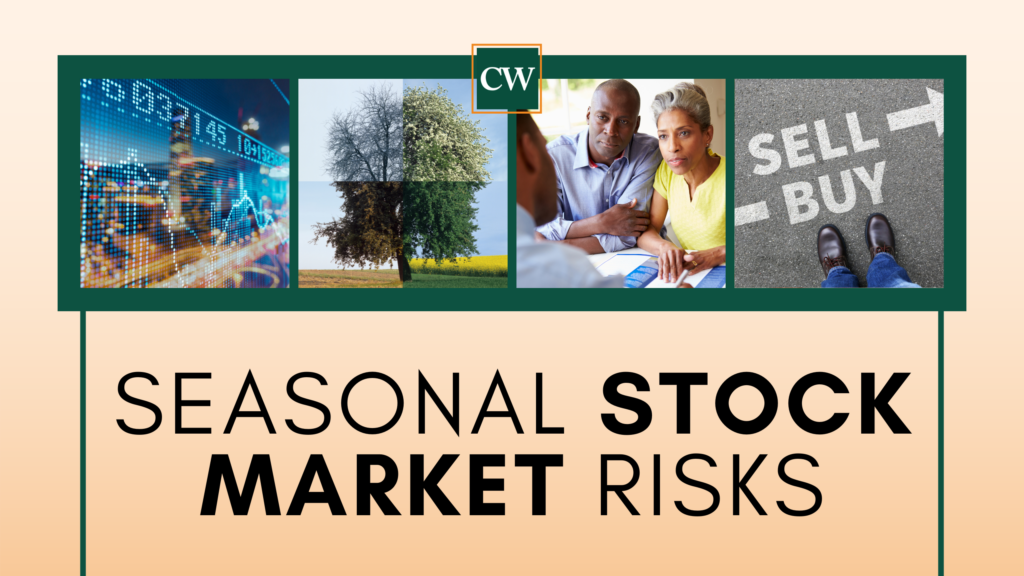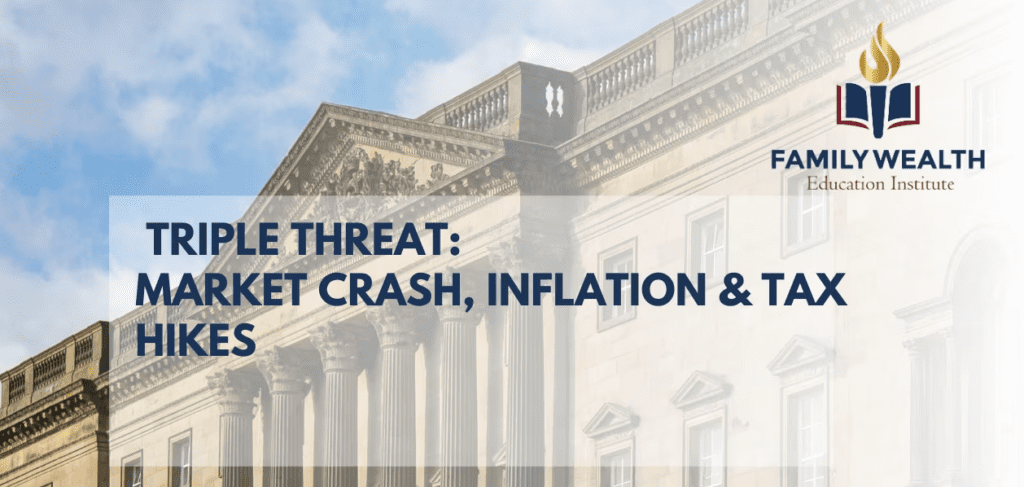When it comes to investing money, the more things change, the more they stay the same. Often consumers start investing using savings accounts, the money market, and other short- term investment options. Later, when they start to save for retirement and get serious about other financial goals, they may keep this short-term mentality, but this can be a mistake.
To download free education by the author on investing strategies, visit our Insights page for free reports.
Once they’ve gotten control of any credit card debt and learned to manage credit cards – using those with a very low interest rate or ideally paying the card off each month – it is time to consider a longer period of time or investment horizon to frame out how to become and stay financially secure for the long term.
Whether using a robo advisor, traditional financial advisors, or going it alone, most folks should shift to a best-practices investment strategy that uses a mutual fund or funds or even invests directly in the stock market. A good strategy involves more than trying to know when to buy or sell, assessing risk tolerance, or using tax-efficient accounts like a ROTH IRA.
Most importantly, it means taking the long view and not getting caught up in temporary market performance. This article is meant to help you look at different ways to put recent market results in perspective, and hopefully to be able to better chart your wealth path ahead.
The US Stock Market’s Been On A Tear
As the 2020’s come up over the horizon and with US stocks soundly beating non-US stocks in recent years, many investors have been wondering why the heck professional advisors like Camarda still have their clients invested in non-US stocks.
This position is easy to understand. For the five-year period ending October 31, 2018, the S&P 500 Index had an annualized return of 11.34% while the non-US markets as benchmarked by the MSCI World ex USA Index returned only 1.86%, and the MSCI Emerging Markets Index returned a disappointing 0.78%. US stocks did something like six times better than non-US stocks like those in Japan and Europe, and something like 15 times better than emerging markets’ stocks like those in China, Russia, and South America.
What gives?
Standard Practice for Investment Advisors
Diversifying across many different asset classes – including recently underperforming non-US and emerging markets – is considered standard procedure by many professional portfolio managers, including Camarda.
But as US stocks have outperformed international and emerging markets stocks strongly over the last several years, some investors might be thinking “enough, already!!” and may be reconsidering the benefits of diversifying outside the US.
We think this could be a major mistake. But with results like the recent run up in US stocks, why have advisors like Camarda stuck to their guns? Why should you?
Am I crazy to keep investing in non-US stocks?
Well, maybe crazy like a fox. With US stocks doing so well, many might wonder why not put it all in US stocks or just an S&P 500 index fund? Why diversify into other asset classes like non-US stocks? Many investors have been asking this question.
Well, the big reason, of course, is we expect global diversification, in the end, to produce more profits than just sticking with US stocks. Using return differences over a relatively short period as the major driver of this decision may result in missing out on the compelling upsides that the global markets offer.
While international and emerging markets stocks have delivered disappointing returns relative to the US over the last few years, it is important to remember that:
1. Non-US stocks help provide valuable diversification benefits to help reduce risk.
2. Recent performance is not a reliable indicator of future returns. In fact, what has done well recently may do poorly going forward.
3. Keeping a healthy chunk of your stock portfolio in non-US could both reduce risk and increase returns for those that stick to their guns.
WHAT HAPPENED LAST TIME? DID NON-US STOCKS REALLY SMOKE US STOCKS?
Consider the potential opportunity cost from not diversifying globally. Let’s look at the period from 2000–2009. During this period, often called the “lost decade” by market pundits, the S&P 500 Index booked its worst ever 10-year performance with a total cumulative return of –9.1%.
That’s right – holders of US stocks actually lost nearly 10% ten years later.
But what was happening in international stocks? While US stocks were doing poorly, most stock asset classes outside the US booked positive returns. In fact, these returns were not only gains instead of losses like in the US, but were substantially better. Some were really quite remarkably better. Non-US stocks did from about 26% better to about 221% better than US stocks over the same period. (See Exhibit 1.)
To put this in context, during this period $1,000,000 in the S&P 500 would have shrunk to $909,000, while if invested like in the MSCI World it could have grown to $1,174,700 over the same time, and if invested like in the MSCI Emerging Markets Value, an investors pile could have grown from $1,000,000 to $3,127,200 at the same time US stocks were losing money!
I don’t know about you, but to me this seems like a pretty big deal.
For this reason, advisors who used global diversification for their clients (as Camarda did) during the early 2000’s may have been quite proud of their returns, while advisors and investors who did not may have been less pleased.
But was this a fluke?
WHAT ABOUT THE TIMES BEFORE THAT?
It looks like this was no fluke. Non-US stocks beating US stocks has actually been a pretty regular event. Looking at performance for each of the 11 ten year periods starting in 1900 and ending in 2010, the US market outperformed the world market in five decades and underperformed in the other six.*
That’s right. Over this study period, non-US stocks did better more of the time than US stocks, though it was pretty close.
This further reinforces why an investor looking for profits in stocks should consider keeping a healthy chunk in non-US stocks. No one knows what the future will bring, but clearly US stocks have been on a tear, and history shows things like this don’t go on forever.
Eventually, leadership flips. What’s more, US stocks are considered by many to be overvalued at this point in the cycle, while many non-US stocks look remarkably cheap. Could we be reaching a tipping point where non-US stocks shine, and US stocks face down another “lost decade?”
If so, prudent investors might be very happy to be holding a chunk of non-US now, but before that might happen.
By holding a globally diversified portfolio, investors are positioned to capture returns wherever, and whenever, they occur. There is no reliable way to predict in advance when such shifts will occur. But with US stocks trading at lofty valuations compared to non-US stocks in the eyes of many pros, gains for those holding non-US stocks going forward could be very substantial when the tide finally turns again, for those positioned to take advantage of it.
Such positioning is the essence of why advisors like Camarda use global diversification, and stick to it even when it is unpopular. Camarda believes it is our duty to use our expertise to guide its clients wisely into the future, and to help them understand the reasons. Our job is to try to look way down the road, well beyond the next stop sign. The human brain is really hardwired to just fixate on that next stop sign, but we believe that investors and advisors that fall into this trap are just setting themselves up for big disappointment later.
* Source: Annual country index return data from the Dimson-Marsh-Staunton (DMS) Global Returns Data, provided by Morningstar, Inc.
Exhibit 1. Global Index Returns, January 2000–December 2009

S&P data © 2018 S&P Dow Jones Indices LLC, a division of S&P Global. All rights reserved. MSCI data © MSCI 2018, all rights reserved. Indices are not available for direct investment. Index performance does not reflect expenses associated with the management of an actual portfolio. Past performance is not a guarantee of future results.
A STRATEGIC LONG GAME IS THE KEY
Over long periods of time, investors may benefit from consistent exposure in their portfolios to both US and non-US equities. While both asset classes offer the potential to earn positive expected returns in the long run, they often perform quite differently over short and intermediate periods. While the performance of different countries and asset classes will vary over time, there is no reliable evidence that this performance can be predicted in advance. An approach to equity investing that uses the global opportunities available to investors can provide diversification benefits as well as potentially higher expected returns.
Since investors typically invest to grow wealth for long term goals like funding retirement and leaving legacies for their children, the long term results of wealth accumulation are ultimately more important, we think, than a few good pops or a few good years. Camarda’s objective for clients is to win the game, not just enjoy a few good plays or innings.
To download a free guidebook by the author on investing strategies, click here.




